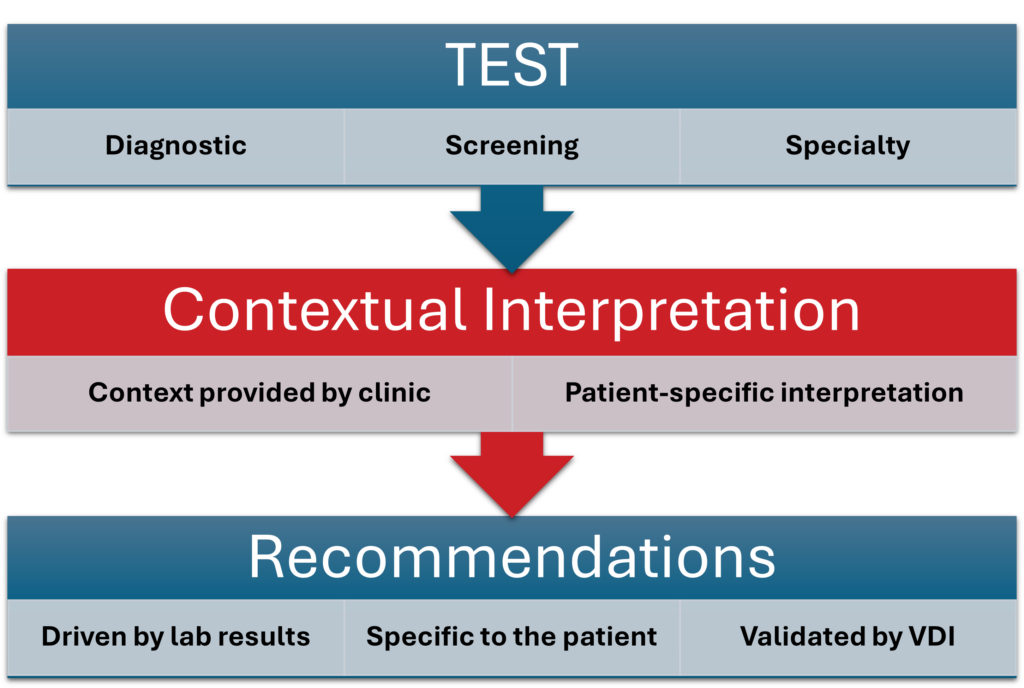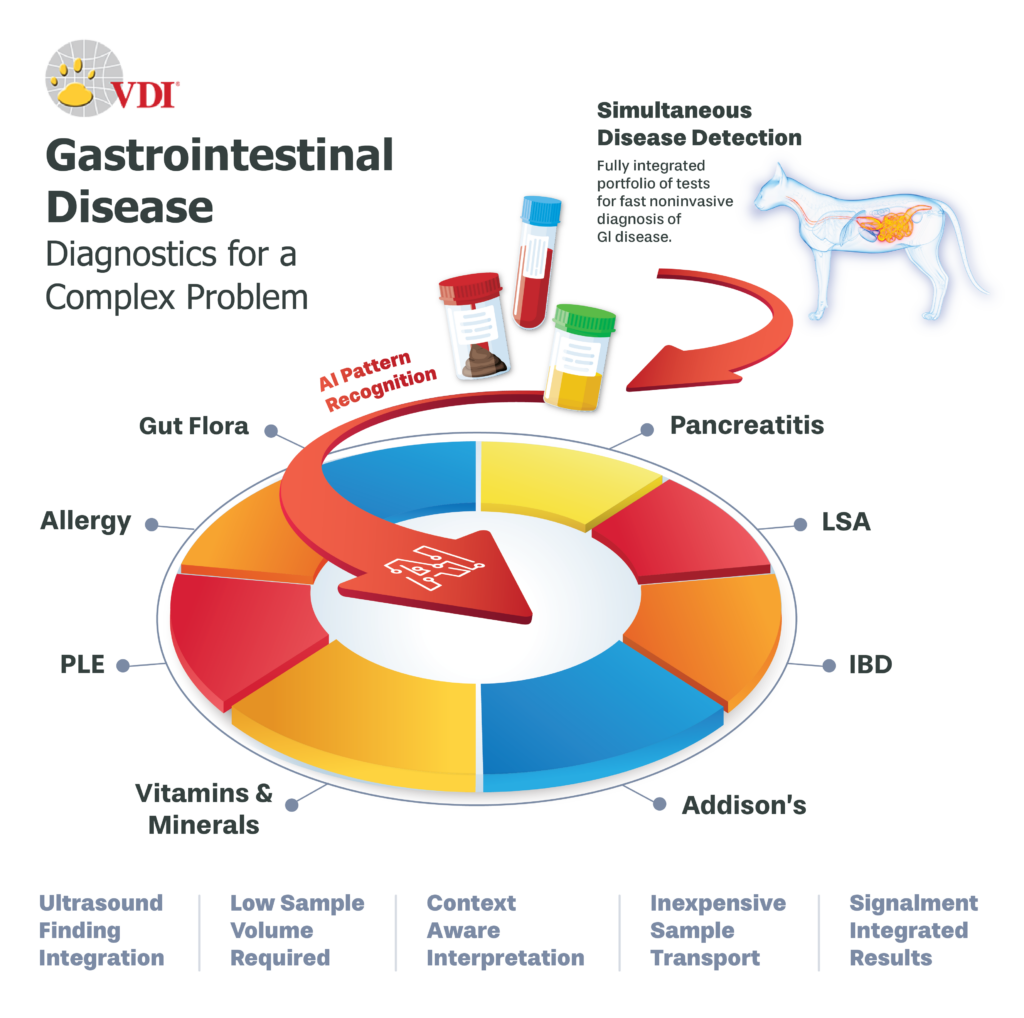
Intelligent Diagnostics
The use of laboratory diagnostics is vital in the workup of patients, both apparently healthy and acutely ill. The combinations of positive/ negative test results linked to a particular disease are numerous and requires veterinarians to remember these combinations even for diseases not frequently seen. To provide further diagnostic assistance, VDI utilizes hundreds of peer-reviewed clinical research articles, specialist and expert input, and the aid of computer algorithms to help decode these diseases.
Context is Key
The Role of Context in Biomarker-driven Diagnostics
Every test result, whether normal or abnormal, influences the interpretation of the report. For the most part, reference laboratories and in-clinic analyzers, expect you to make sense of the raw numbers in context of each case and the rest of the workup. VDI has taken steps to shift this burden off of the veterinarian by asking for patient context, applying expert systems, and delivering patient-specific interpretation and recommendations.

Elevating Lab Results Analysis with VDI
Patient context is critical for the proper understanding of diagnostic results. With every sample submission, we ask for context in a simple, check box format. That data is integrated into the report to make the most sense of the results and to provide meaningful interpretation for you and the client. The more information you can provide the more meaningful the report will be – leaving you more time to provide patient care.
Intelligence in Diagnostics

Laboratory test results are simply numbers on a page. Lacking context, they have limited meaning. Traditionally, laboratories leave all the contextual interpretation to the veterinarian, but how can we expect the veterinarian to remember everything they need to AND the diagnostic intricacies and combinations? VDI helps to ease this process by offering context-sensitive result interpretation.
A VDI Example: GI Workup
The Advanced GI Panel provides workup for patients with GI Signs and includes the following intelligent, context-sensitive integrations:
Patient Demographics
Age, Weight, Sex, Intact Status, etc.
Medications
E.g. steroids, NSAIDS, chemotherapy, antibiotics, and even botanicals
Signalment
e.g. diarrhea, wt. loss, vomiting, thickened intestines, etc.

For patients with GI signs, the Advanced GI Panel can be expanded to include the GI Microbiome Panel, Allergy Panel, Fur Mineral Analysis, Glyphosate Panel, and Mycotoxin Panel to expand the full breadth of the workup.

The VDI test menu has evolved to include supporting tests around disease states (e.g. GI disease), and often integrate results from various VDI panels into each panels’ interpretation. The same process is used in our wellness screening:
Intelligence in Screening
One of the biggest concerns with abnormal results on an otherwise healthy patient is: What to do? Where to look, how invasive, how serious? Using the differential list of possible sources of inflammation – direct your focus on the diseases that are most likely (based on clinical research and big data) to make decisions relevant to the case.


Unlocking the Code
The combinations of normal and abnormal results from lab tests creates a digital and visual code. This code can be seen on the differential list provided by VDI. As the code changes, the lists of diseases alters: sorting, eliminating, and ranking probable diseases. The more parameters input, the more focused the list becomes.
Intelligent Reports with VDI
VDI uses intelligent diagnostics to help guide in the workup of abnormal test results. When screening tests are outside of reference intervals VDI Intelligent Diagnostics points you in the right direction. Intelligent reports come with all VDI Wellness Panels – helping you with some of the most challenging cases.
